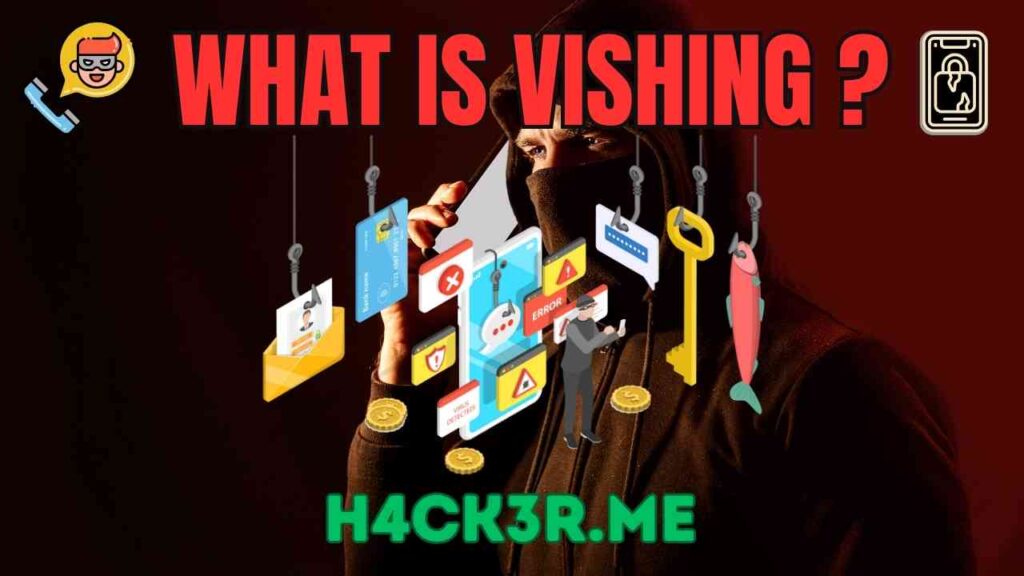What is Vishing ? Vishing Definition
What is Vishing ? Understanding, Detecting, and Preventing Voice Phishing

Table of Contents
Introduction
In today’s digital age, cybercriminals continue to devise ever-more-sophisticated schemes to exploit individuals and organizations. Among these tactics, one that often flies under the radar is “vishing,” a cunning form of fraud that targets victims through phone calls. Vishing, short for “voice phishing,” leverages social engineering techniques and the anonymity of telephone communication to deceive individuals into revealing sensitive information, personal details, or even financial data. In this comprehensive blog post, we will dive deep into the world of vishing, exploring its definition, the methods employed by cybercriminals, real-life examples, the risks involved, and most importantly, how you can protect yourself and your loved ones from falling victim to this insidious form of fraud.
What Is Vishing?
Defining Vishing
- Begin by providing a clear definition of vishing, explaining that it is a form of phishing that occurs over phone calls, often using caller ID spoofing to appear legitimate.
The Essence of Voice Phishing
- Delve into the core of vishing, highlighting that it relies on the human voice and manipulation to trick victims into divulging confidential information.
The Evolution of Vishing
- Explore the origins of vishing and its transformation from simple cold calls to highly sophisticated and targeted attacks.
How Vishing Works
Social Engineering Tactics
- Explain the psychological manipulation techniques employed by vishers, such as fear, urgency, authority, and familiarity.
Caller ID Spoofing
- Detail how vishers often use technology to spoof caller ID information, making it appear as if the call is coming from a trusted source.
Impersonation of Trusted Entities
- Discuss how vishers may impersonate trusted organizations, like banks, government agencies, or tech support services, to gain victims’ trust.
Real-Life Vishing Examples
Fake Tech Support Scams
- Provide examples of vishing calls in which cybercriminals impersonate tech support agents, claiming that the victim’s computer is infected with malware.
IRS and Tax-Related Scams
- Share instances of vishing calls where fraudsters pose as IRS agents and demand immediate payment of taxes or threaten legal action.
Banking and Financial Scams
- Discuss vishing attacks targeting individuals’ financial information, often leading to unauthorized access to bank accounts or credit card fraud.
The Risks and Consequences of Vishing
Financial Loss
- Explain that vishing attacks can result in significant financial loss, as victims may unknowingly provide access to their bank accounts, credit card details, or sensitive personal information.
Identity Theft
- Discuss the risk of identity theft associated with vishing, as cybercriminals can use the information obtained to impersonate the victim and commit fraud in their name.
Privacy Invasion
- Emphasize how vishing attacks violate individuals’ privacy by gaining access to personal, financial, and sensitive data.
Emotional Distress
- Address the emotional toll vishing can take on victims, including feelings of violation, vulnerability, and mistrust.
Protecting Yourself from Vishing
Verify Caller Identity
- Encourage readers to always verify the identity of callers, especially when they request sensitive information or payment. Use official contact information to reach out to organizations.
Don’t Share Personal Information
- Advise individuals never to share personal, financial, or sensitive information over the phone unless they initiated the call and are certain of the recipient’s identity.
Be Skeptical of Unsolicited Calls
- Stress the importance of skepticism when receiving unsolicited calls, even if the caller claims to be from a trusted organization. Cybercriminals often rely on urgency and pressure.
Use Call Screening and Blocking Tools
- Suggest using call screening and blocking apps or features provided by mobile service providers to filter out potential vishing calls.
Educate and Raise Awareness
- Encourage readers to educate themselves and their loved ones about vishing risks and prevention techniques.
Reporting Vishing Attempts
Law Enforcement and Authorities
- Advise victims or those who receive vishing calls to report the incidents to law enforcement agencies and relevant authorities.
Federal Trade Commission (FTC)
- Highlight the role of the FTC in collecting information about vishing attempts and providing resources for reporting.
Conclusion
Vishing, while less discussed than some other cyber threats, is a formidable adversary that preys on trust and manipulation. By understanding what vishing is, recognizing its methods, and staying informed about real-life examples, you are better equipped to protect yourself from falling victim to these deceptive phone calls. It’s crucial to remain vigilant, exercise caution, and educate those around